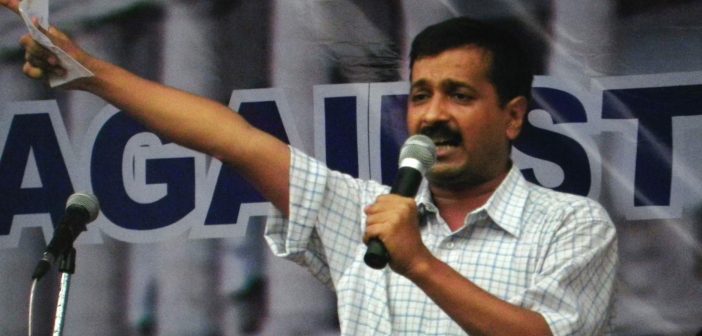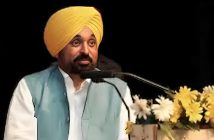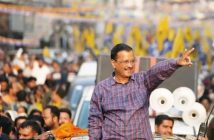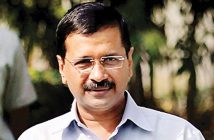Arvind Kejriwal, the Delhi Chief Minister and leader of the Aam Aadmi Party (AAP), was released from Tihar Jail on Friday after the Supreme Court granted him interim bail until June 1 in the liquor policy case. This marks a significant development in the ongoing legal proceedings against him, which have been closely watched given the timing of the Lok Sabha elections.
Case History
On March 21, 2024, Arvind Kejriwal, the Chief Minister of Delhi, was arrested by the Enforcement Directorate (ED) in connection with a money laundering case linked to the alleged Delhi excise policy scam. The case revolves around accusations of corruption and kickbacks during the formulation and implementation of the Delhi Excise Policy 2021-22, allegedly favouring certain liquor wholesalers called the “South Group.” The ED claimed that Kejriwal acted as the mastermind and key conspirator in the Delhi excise scam, accusing him of conspiring to favour specific individuals and demanding kickbacks from liquor businessmen in exchange for implementing the policy.
Kejriwal’s attorney, Abhishek Manu Singhvi, argued that the arrest was politically motivated to prevent the Chief Minister from participating in the upcoming Lok Sabha elections. Singhvi emphasized that the Enforcement Directorate (ED) had been unable to recover any evidence linking the “proceeds of the crime” to Kejriwal. He further highlighted that over 80% of those connected with the case had not mentioned Kejriwal or any dealings with him, suggesting that the case had been constructed based on the statements of some co-accused individuals and the Delhi L-G.
The AAP and Kejriwal have consistently denied these charges, claiming they are part of a political vendetta by the Bharatiya Janata Party (BJP) to discredit the party before the elections.
.
The Supreme Court’s decision to grant Kejriwal interim bail was a major relief for the AAP leader and his party. While serious accusations have been made against him, the court observed that he has not been convicted yet and has no criminal antecedents. The bench, comprising Justices Sanjiv Khanna and Dipankar Datta, noted that Kejriwal is not a threat to society and that granting him interim bail for 21 days would not make much difference.
.
As part of the bail conditions, Kejriwal was asked not to visit the Chief Minister’s Office (CMO) and to surrender himself to prison officials on June 2. The court also asked him to furnish bail bonds of Rs 50,000 with one surety of like amount. This decision was seen as a significant victory for Kejriwal, as it allowed him to participate in the ongoing Lok Sabha elections, which are crucial for the AAP’s political fortunes.
.
Kejriwal’s release from jail was met with jubilation from his supporters, who gathered outside the prison complex to welcome him. He was accompanied by his wife, Sunita Kejriwal, and other AAP leaders, including Punjab Chief Minister Bhagwant Mann and party general secretary Sandeep Pathak. After his release, Kejriwal addressed a gathering of AAP workers, thanking them for their support and urging them to continue fighting against what he called “dictatorship.”
.
The Supreme Court’s decision to grant Kejriwal interim bail has been seen as a significant intervention in India’s political landscape. The court’s observation that Kejriwal is not a threat to society and that he could have been arrested earlier or after the elections has been interpreted as a rebuke to the ED’s handling of the case. The court’s emphasis on the importance of the Lok Sabha elections, which are crucial for the country’s governance, has also been noted.
.
Overall, Arvind Kejriwal’s release from jail on interim bail marks a significant development in the ongoing legal proceedings against him. The decision is seen as a major relief for the AAP leader and his party, which are fighting to maintain their political momentum in the face of intense opposition from the BJP.
Significance Of The Supreme Court’s Decision To Grant Arvind Kejriwal Interim Bail
The Supreme Court’s decision to grant Arvind Kejriwal interim bail holds significant implications in the legal and political landscape. Kejriwal, the Chief Minister of Delhi, was granted interim bail until June 1 in connection with a money laundering case linked to the alleged Delhi liquor policy scam. This decision is crucial for several reasons:
- Balancing Legal Rights and Election Campaigning: The Supreme Court had to balance Kejriwal’s right to campaign for his party in the ongoing Lok Sabha elections against the Enforcement Directorate’s (ED) stance that he should not receive differential treatment as a common accused under judicial custody. This ruling showcases the court’s effort to uphold the rule of law while considering the importance of election campaigning.
- Preserving Free and Fair Elections: By granting Kejriwal interim bail, the court ensured that he could participate in the election process, emphasizing the significance of free and fair elections in a democracy. This decision underscores the court’s recognition of the importance of political participation and the impact of Kejriwal’s release on the electoral process.
- Setting a precedent for Similar Cases: Legal experts suggest that Kejriwal’s case will serve as a precedent for similar cases. While Kejriwal’s bail was tailored for the duration of the Lok Sabha polls, it may influence future decisions regarding interim bail for individuals involved in election-related legal matters. This decision could impact how courts handle cases involving political figures and their participation in electoral processes.
- Protecting Fundamental Rights: The court’s decision to grant Kejriwal interim bail reflects a nuanced understanding of his case’s unique circumstances. It acknowledges his role as the head of a political party and the State government, highlighting the importance of ensuring his ability to campaign without compromising the rule of law. This decision underscores the court’s commitment to safeguarding fundamental rights while upholding legal principles.
In summary, the Supreme Court’s grant of interim bail to Arvind Kejriwal is significant for its implications for legal proceedings, political participation, and the electoral process and for setting a precedent for similar cases involving individuals in positions of political leadership.




